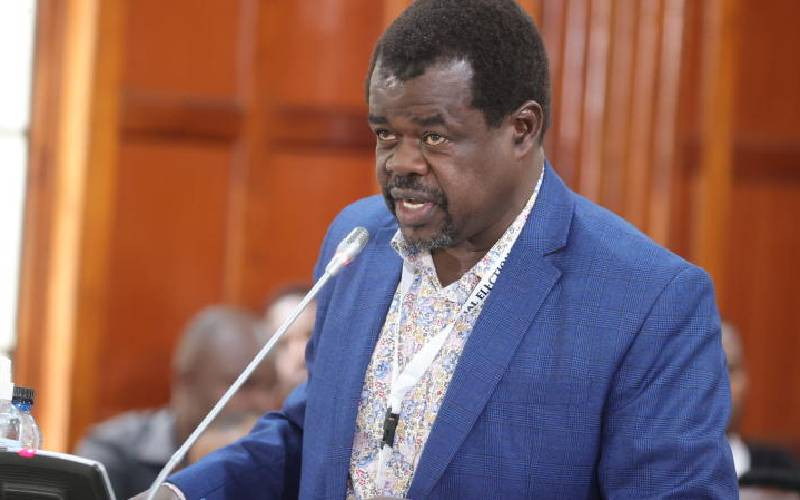×
The Standard e-Paper
Stay Informed, Even Offline

Busia Senator Okiya Omtatah speaks at Milimani court buildings on Wednesday, August 31,2022.[Collins Kweyu,Standard]
Whereas one would have expected that the focus at the Supreme Court would have been on the lawyers donning expensive suits, black robes and white wigs during the hearing of the presidential election petitions, one man did steal the show with his submissions and casual dressing.